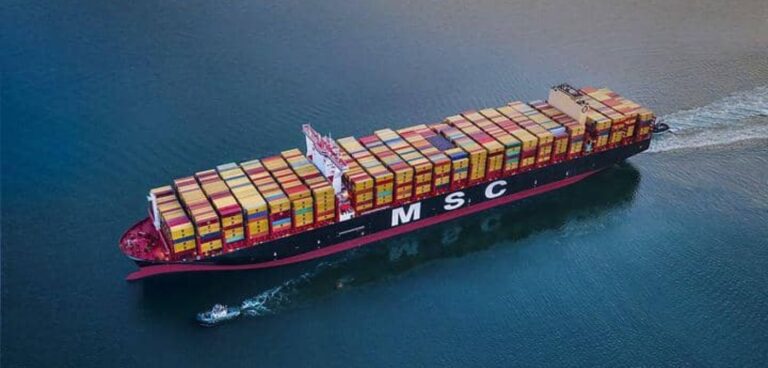Freight forwarder DB Schenker has agreed a deal with shipping line Mediterranean Shipping Company (MSC) to use ‘12,000 tonnes of biofuel component for all of its own consolidated cargo, less-than-container load (LCL), full-container-load (FCL) and refrigerated containers’.
The biofuel in question is derived from used cooking oil. The component will be blended to create roughly 50,000 tonnes of blended biofuel that will be used to fuel MSC’s container ships.
DB Schenker claims that this purchase is enough to save an additional 35,000 tonnes of CO2e along the entire production chain. Depending on how the fuel is used, it has the potential to allow for the shipping of 30,000 TEU worth of cargo with net-zero CO2 emissions, the company says.
Thorsten Meincke, Global Board Member for Air & Ocean Freight at DB Schenker, said: “Together with MSC, we are offering our customers a convenient and clean solution using the latest generation of marine biofuel to help them achieve a real additional reduction in their emissions.
“We are doing this because we firmly believe it is the right thing to do and are therefore paying for biofuel purchases in advance. One thing is certain: the more customers demand climate neutrality throughout supply chains, the faster we achieve clean container ocean freight.”
Caroline Becquart, Senior Vice President of MSC, added: “Decarbonising ocean freight cannot be achieved by a single player and requires collaboration between shipping and logistics companies and their customers.
“MSC Biofuel Solution is our first certified carbon insetting program that reduces emissions in our customers’ supply chains, accelerating the energy transition by creating demand for net-zero carbon shipping and delivering direct CO2 savings.”







